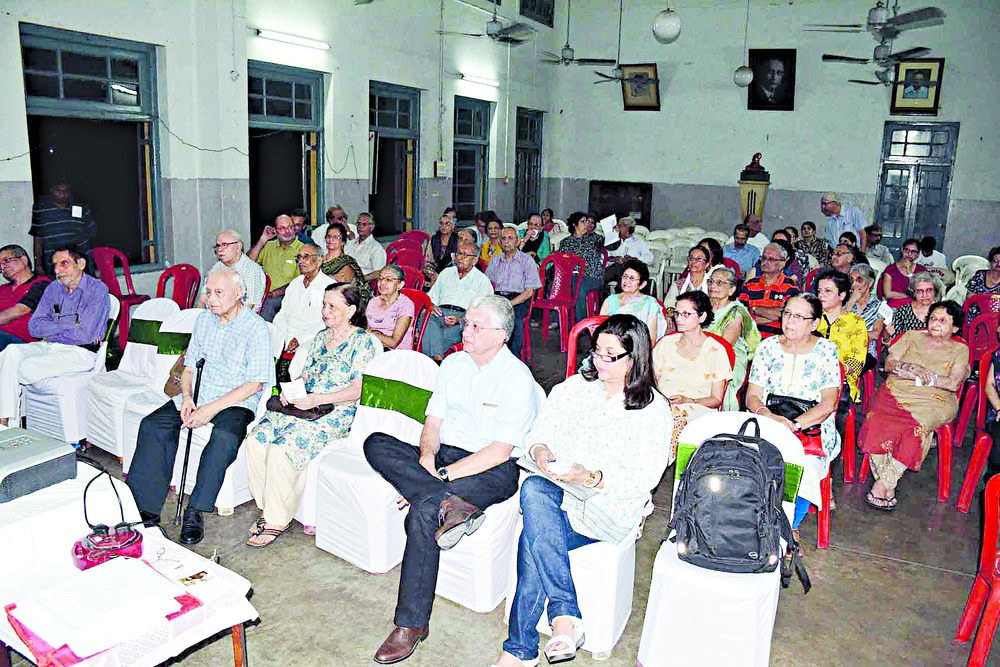
This tiny community has thrown up achievers by the bagful. From the Tatas, Wadias and Godrejs, Homi Bhabha, Sam Manekshaw to Bejan Daruwalla, Rohinton Mistry, Farokh Engineer, Cyrus Broacha and Boman Irani, Parsis have dazzled in every field.
But, in a population of 1.2 billion in India, there are only about 69,000 Parsis, the inverse birth-to-death ratio assuming scary proportions. For every 200 Parsis born, 800 die.
If there's a ray of hope for the community's population turnaround, it is in Jiyo Parsi, a scheme launched in 2013 by the Union ministry of minority affairs, along with Parzor Foundation, TISS and Bombay Parsi Punchayet, which encourages Parsi couples, through a mix of advocacy and medical help, to have children at the right time.
Jiyo Parsi, which came to Jamshedpur on Friday in its first ever pit stop in eastern India, met members of the community at the Baug-E-Jamsheed, a stone's throw from the Parsi Fire Temple.
Only around 200 Parsis live in this industrial town named after an iconic Parsi man.
Speaking on Jiyo Parsi, the two-member Jiyo Parsi team of Dr Katy Gandevia and Pearl Mistry explained that the scheme, launched with a corpus of Rs 10 crore, aimed at facilitating at least 200 births over a period of five years. "The reasons for dwindling population include late marriage, not marrying at all, fertility decline, settling abroad and marrying outside the community," Mistry, a counsellor, said.
"We are interacting with the Parsi community for the first time in Jamshedpur and talking about the Jiyo Parsi scheme, including parenthood at the right time, financial assistance for fertility treatments, stress and anger management to promote understanding among couples," Mistry added.
Under Jiyo Parsi, 7 per cent of the fund is spent on counselling Parsi youths and their families for marriage and conception at the right time, as well as training volunteers to raise awareness of the scheme. The rest is spent on detection of problems and fertility treatment for married Parsi couples. Financial aid is extended for medical tests too.
A couple earning Rs 10 lakh and below annually will get 100 per cent medical coverage if they have fertility problems. Those earning between Rs 10 and 15 lakh a year will get 75 per cent coverage while those in Rs 15-20 lakh bracket will get 50 per cent coverage for fertility treatments, Mistry added.
Welcoming the scheme, Jamshedpur Parsi Association executive committee member Navzar Dotivala told The Telegraph that the scheme would definitely help couples plan their families better.
"We have so far conducted similar interactions at Secunderabad, Nagpur, Delhi, Surat, Navsari, Ahmedabad and Panchgani. The Jiyo Parsi scheme is showing positive results," Mistry said. The team's next stop is in Calcutta on June 26.
Do you approve of Jiyo Parsi to revive the community's population? Tell ttkhand@abpmail.com











